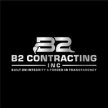How to Become a Heavy Machinery Operator
Introduction

Operating heavy Machinery plays a crucial role in construction, mining, and various industrial settings. If you're interested in becoming a heavy Machinery operator, understanding the requirements and steps involved can help you pursue this career path effectively.
What is a Heavy Machinery Operator?
A heavy Machinery operator is responsible for operating and maintaining large machinery used in construction, excavation, and other industrial activities. This includes Machinery like bulldozers, cranes, excavators, loaders, and more. Operators ensure these machines are used safely and efficiently to complete tasks such as digging trenches, lifting materials, grading land, and more.
Heavy Machinery Operator Requirements
To embark on a career as a heavy Machinery operator, certain requirements must be met:
• High School Diploma or Equivalent: Most employers require a high school diploma or GED equivalent. It's beneficial to take courses in mathematics, physics, and mechanical drawing to build a foundational understanding applicable to the job.
• Training and Apprenticeships: Many aspiring operators enroll in training programs offered by vocational schools, community colleges, or apprenticeship programs. These programs provide hands-on training with various types of Machinery and teach safety procedures, maintenance practices, and operational techniques.
Necessary Skills
Successful heavy Machinery operators possess a range of skills, including:
• Stamina: The job can be physically demanding, requiring operators to work long hours in sometimes adverse weather conditions.
• Good Vision: Clear eyesight is essential for operating machinery safely and effectively.
• Coordination: Operators must have excellent hand-eye coordination to maneuver Machinery precisely.
• Quick Reaction Times: They need to react swiftly to changing conditions and potential hazards on the job site.
Operator Certification or License
While not always mandatory, obtaining certification or a license can enhance job prospects and demonstrate competency. Certification programs, such as those offered by the National Center for Construction Education and Research (NCCER) or the National Commission for the Certification of Crane Operators (NCCCO), provide formal training and assessments that validate an operator's skills and knowledge.
Benefits of Becoming a Heavy Machinery Operator
Becoming a heavy Machinery operator offers several compelling benefits, making it an attractive career choice for many individuals interested in construction and industrial work. Here are some key advantages:
1. Competitive Pay: Heavy Machinery operators typically enjoy competitive wages. According to the U.S. Bureau of Labor Statistics, the median annual wage for operating engineers and other construction Machinery operators was $50,110 in May 2020. Operators with specialized skills or working in high-demand industries may earn even more, particularly in regions experiencing significant construction or infrastructure development.
2. Job Stability: The demand for heavy Machinery operators tends to remain steady, driven by ongoing construction projects, infrastructure development, and maintenance needs across various industries. This stability provides operators with reliable employment opportunities and the potential for long-term career growth.
3. Diverse Work Environments: As a heavy Machinery operator, you have the opportunity to work in diverse environments. Whether you prefer working outdoors on construction sites, in mining operations, or at industrial facilities, the job offers variety and the chance to experience different types of projects and Machinery.
4. Hands-On Work: For those who enjoy hands-on work and operating machinery, becoming a heavy Machinery operator allows you to actively engage in the operation and maintenance of large Machinery. This hands-on experience can be personally fulfilling and intellectually stimulating as you master the skills required to operate different types of heavy machinery.
5. Career Advancement Opportunities: Experienced heavy Machinery operators have opportunities for career advancement. They may progress to supervisory roles, such as Machinery manager or site supervisor, where they oversee operations, manage teams, and ensure project efficiency. Additionally, operators can specialize in specific types of Machinery or industries, enhancing their expertise and earning potential.
Conclusion
Becoming a heavy Machinery operator requires dedication, training, and a commitment to safety. By meeting educational requirements, gaining practical experience through training programs or apprenticeships, and obtaining necessary certifications, you can establish a successful career in this essential field. Heavy Machinery operators play a vital role in construction and industrial operations, contributing to the development of infrastructure and the growth of various industries. If you're passionate about heavy machine operator jobs and seeking a dynamic career, pursuing the path of a heavy Machinery operator could be a rewarding choice.
About the Creator
B2 Contracting
The countless completed projects over the years has allowed B2 Contracting to build, maintain and update a fleet of heavy equipment and vehicles. B2 contracting has maintained steady growth and success since opening our doors in 2013.
Enjoyed the story? Support the Creator.
Subscribe for free to receive all their stories in your feed. You could also pledge your support or give them a one-off tip, letting them know you appreciate their work.






Comments
There are no comments for this story
Be the first to respond and start the conversation.